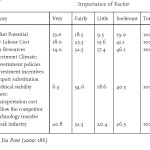In Memoriam Johan Galtung (1930-2024)

Johan Galtung
12-09-2024 ~ “A very important reason for forbidding nuclear weapons and other weapons of mass destruction is that they increase the threshold for what is acceptable.”
A conventional war is often defended by saying it did not go nuclear.
The international legal framework for warfare is already a victim of nuclear arms and can only regain its validity by forbidding that insult perpetrated on humanity. (Galtung 2017).
Professor Johan Vincent Galtung, who passed away on February 17, 2024, is generally know as the founder of the academic discipline or interdisciplinair field, of Peace Research. He started in 1964 the Institut for Fredsforskning (PRIO) in Oslo, Norway. But he himself was much more than an academic. During and after his academic career, he was appointed ten times Dr Honorios Causa and was holder of the Right Livelyhood Award (aka Alternative Nobel Peace Price) 1987.
Let me focus on a few of his many abilities, like his research, his contribution to social science and his practice in creative conflict solution. And memorizing him is for me not possible without paying attention to my personal relation with him.
For me, and for many social scientist, Galtung became an inspiration thanks to his book on Theory and Methods of Social Research (London: Allen & Unwin, 1967). In that book he introcuced the basic concept of the data matrix. In short, the units and variables to be explored are given by the research strategy. Data collection is viewed as an effort to fill the data matrix with values, one for each combination of unit and variable. By data processing the matrix is brought on a form suitable for analysis. Analysis itself is treated step by step from simple tabulation and computation of parameters through hypothetis-formation to theory-building. This serves as the basis for statistical inference and finally the generalisation of hypotheses. So this book presents on a systematic way the basis for multivariate analysis in social sciences! Read more
Twelve Creative Ways To Foster Reconciliation After Violence

Johan Galtung
12-09-2024 ~ Based on his experience as a mediator in many conflict areas, the author discusses twelve approaches to reconciliation.
He concludes that no single approach is capable of handling the complexity of the situation after violent events, thus combining approaches makes more sense.
The parties involved in the conflict should be invited to discuss these approaches and therefore be able to arrive at the best combination for their own situation.
Key words: conflict theory, peace work, reconciliation
Reconciliation is a processed aimed at putting an end to conflict between two parties. It includes a closure of hostile acts, a process of healing and rehabilitation of both perpetrators and victims. Reconciliation processes often require the intervention of a third party. That party attempts to manage the relationship between perpetrators and victims (Galtung, 1998).
During the reconciliation process the victim can seek restitution for the harm from the perpetrator by having the perpetrator punishedor give compensation. Another possibility is that the victim ‘gets even’ with the perpetrator through revenge. This may bring some gratification, but it may not automatically bring healing from trauma.
The perpetrator may seek release from his guilt through submission, penitence or apology and asking forgiveness.
Since reconciliation essentially takes place between perpetrator and victim, either of them can block the process. In that case, the trauma and guilt live on, and eventually may fuel new conflicts.
In this article twelve different approaches to reconciliation will be discussed. Read more
French PM’s Ouster Shows Deep Cracks In Legitimacy Of Europe’s Neoliberal Order

C.J. Polychroniou
12-08-2024 ~ The French left and far right joined forces to reject austerity, exposing the hollowing of the political center.
France’s National Assembly approved a no-confidence vote in Prime Minister Michel Barnier on Wednesday — just three months after he was appointed by the highly unpopular President Emmanuel Macron.
The rapid collapse of Barnier’s government reinforces the long-held view among political experts that a parliamentary multiparty system has more checks and balances and responds more readily to the will of the people than the U.S. presidential two-party system. And no, the collapse of the government does not mean that France is hurtling toward a U.S.-style government shutdown. French institutions are strong, and the country’s laws ensure that the public sector continues to do its work uninterrupted even in the absence of a government and a budget.
Yet, the government’s collapse speaks volumes of the political legitimacy crisis facing not only France but much of Europe in the age of advanced neoliberalism. Centrist parties are in decline across the continent, and the once ascendent left parties are now facing an existential crisis while the far right is marching steadily into the mainstream. It is not a pretty picture by any stretch of the imagination, but it fits with Antonio Gramsci’s reflection that “the old is dying and the new cannot yet be born.” Read more
How Republics Succeed, Falter, And Fail

John P. Ruehl – Independent Media Institute
12-07-2024 ~ The United States today faces inherent challenges that have weakened the republic, making lessons from the Roman Republic even more necessary to avoid greater political instability.
The U.S. enjoys many strengths that give it an edge over other republics, such as a decentralized and innovative economy that draws global talent and unmatched military strength. Yet the Roman Republic, which had its own comparative advantages, ultimately fell to autocratic rule, and the U.S. faces a similar fate if it fails to protect institutional integrity and unchecked power continues to grow.
Reform is crucial to the continuity of republican governance, yet history shows it is often compromised by entrenched power. Political dysfunction and the growing influence of corporate interests threaten to undermine the foundational principles of the U.S., posing a risk to its long-term stability.
From its inception, the United States has struggled to address its internal contradictions in ensuring fair treatment for its inhabitants. Autocratic tendencies also emerged early, with second President John Adams’s Alien and Sedition Acts targeting political dissent, immigrants, and free speech. Abraham Lincoln later expanded executive power during the Civil War, bypassing Congress to preserve the Union and abolish slavery, the most contentious and significant political question since the country’s founding. Despite such departures from Constitutional procedure—sometimes for good reasons—the system’s checks and balances ultimately resisted later executive overreach, like FDR’s failed Court-Packing plan.
Individual political challenges to republican systems are concerning, but the erosion of republican culture also leads to irreversible shifts in the political framework. Political bribery, unchecked imperialism, and government serving corporate interests over citizens combine to steadily capture the system. A select group of actors has crafted a continuous, increasingly scripted cultural-political spectacle, contributing to civic decline. As a result, the public has reduced active participation in governance in exchange for the passive right to cheer or criticize from the sidelines. Read more
Time For Truthful Narratives On Immigration

Sonali Kolhatkar
12.07-2024 ~ The “migrant crisis” was manufactured and is the fault of both Trump and Biden. We need to understand that the U.S. needs immigrants more than immigrants need the U.S.
A quiet panic has broken out within immigrant communities across the United States ahead of Donald Trump’s inauguration on January 20, 2025. Mixed-status families are expecting to be separated, DACA recipients foresee their status being revoked, those with Temporary Protected Status are pessimistic about the program remaining valid, and asylum seekers fear the worst. Indeed, if Project 2025’s anti-immigrant agenda is fully enacted, the horrors of family separation that the nation witnessed in 2018 under Trump’s first term will pale in comparison to what’s coming.
And yet, Trump might claim that this time, he’s merely following the public’s desires. The prevailing story of the 2024 presidential election is that voters were so fed up with immigration upending their lives that they picked a leader who promised to do something about it. Headlines such as this New York Times piece on Election Day claimed, “Voters Were Fed Up Over Immigration. They Voted for Trump.” Indeed, polls showed likely voters ranking immigration as either the top issue, or second only to the economy. Read more
Niger Resists In The Crosshairs Of Sanctions And Climate Catastrophe
 12-05-2024 ~ Aboubakar Alassane of the West Africa Peoples Organization (WAPO) explains how Nigeriens are enduring the consequences of unprecedented floods that have devastated their economy already crippled by sanctions.
12-05-2024 ~ Aboubakar Alassane of the West Africa Peoples Organization (WAPO) explains how Nigeriens are enduring the consequences of unprecedented floods that have devastated their economy already crippled by sanctions.
In the aftermath of the devastation left behind in the wake of unprecedented floods, Nigeriens are rebuilding their livelihoods and economy with the help of several relief measures instituted by the government to drastically cut prices of essential commodities and services.
The Sahel-wide flooding between June and October of 2024 has exacted a particularly high toll on the people of Niger, destroying crops, cattle, houses, and infrastructure in one of the world’s poorest countries. The country’s economy had already been strangled by seven-month-long sanctions.
By late September, at least 339 were killed, many more injured, and 1.1 million people displaced by the floods caused by unprecedented rain. The storms affected almost 190,000 hectares of cultivated agricultural land in a country with one of the highest child malnutrition rates.
Maradi region, the agricultural hub of south-central Niger, was the worst affected, with “the equivalent of an entire month’s worth of rain falling in a day,” said Aboubakar Alassane, a member of the coordination council of West Africa Peoples Organization (WAPO).
Masses of livestock, one of the most important sources of foreign exchange in Niger, were washed away in the Agadez region in the Sahara desert in the central north of the country. This destroyed the sole livelihood of nomadic communities. Read more


